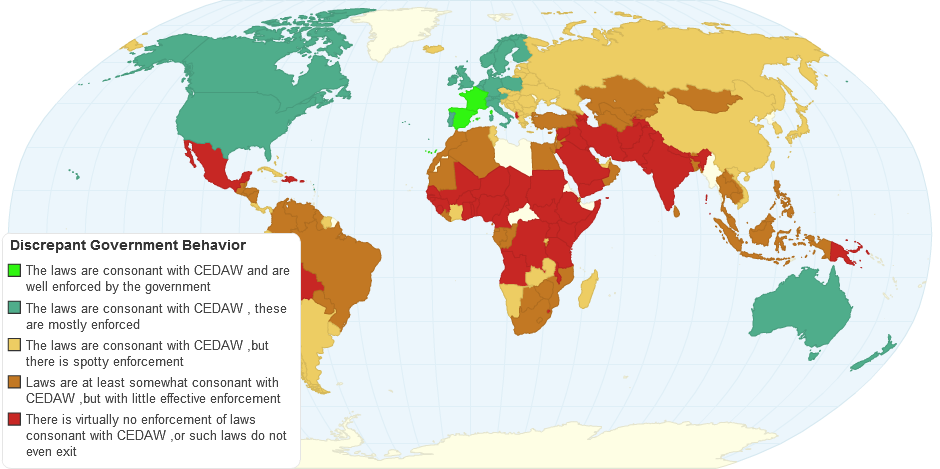This chart shows Discrepant Government Behavior Concerning Women.
Behavior that clashes with previously held attitudes is called attitude-discrepant behavior. This is the type of behavior that creates dissonance, so this is the type of behavior that changes attitudes. Sears, Peplau, Freedman, and Taylor.
Women's access to education has been recognized as a fundamental right. At the national level, educating women results in improved productivity, income, and economic development, as well as a better quality of life, notably a healthier and better nourished population. It is important for all kinds of demographic behaviour, affecting mortality, health, fertility, and contraception, The personal benefits that women attach to education vary widely according to region, culture, and level of devlopment, but it is clear that educaiton empowers women, providing them with increased autonomy and resulting in almost every context in fewer children.
The Convention on the Elimination of all Forms of Discrimination Against Women (CEDAW) is an international treaty adopted in 1979 by the United Nations General Assembly. Described as an international bill of rights for women, it was instituted on 3 September 1981 and has been ratified by 189 states. Over fifty countries that have ratified the Convention have done so subject to certain declarations, reservations, and objections, including 38 countries who rejected the enforcement article 29, which addresses means of settlement for disputes concerning the interpretation or application of the Convention
10 years ago

